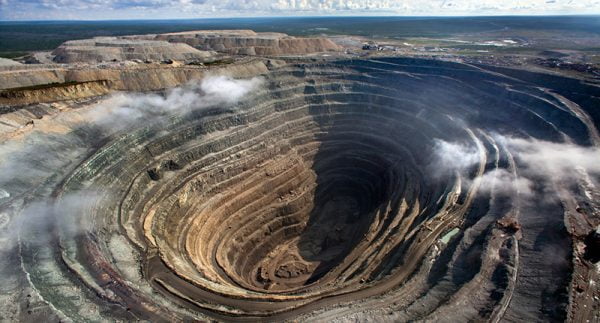Lack of good projects puts mining boom at risk

After years of suffering, the mining industry is finally somewhat bullish on its own prospects. But senior executives at the Reuters Mining Summit this week reported a pronounced lack of good new projects of the kind that last for decades and make a company’s fortune.
“Trying to discover a new Voisey’s Bay is a needle-in-a-haystack exercise,” said Aaron Regent, chief executive of zinc miner Falconbridge Ltd. FL.TO, referring to Inco Ltd.’s N.TO giant nickel deposit in eastern Canada. “We’re all trying to scale up and get more volume through.”
That sentiment extends across segments of the mining industry, into precious metals as well.
“Discoveries are becoming harder and harder to find,” said Greg Wilkins, chief executive of Barrick Gold Corp. (ABX.TO). “I think the mining industry has less flexibility today than it did five years ago in grade management.”
The mining companies that presented at the summit largely agreed that, in the short term, they are well placed, with facilities to mine and projects to develop. But just beyond the horizon, they say, a much more serious risk lurks.
“The scarcity of good exploration projects is going to become a serious issue three to five years from now,” said Donald Lindsay, chief executive of top zinc miner Teck Cominco Ltd. TEKsvb.TO.
OFF THE PATH
Mining bosses say the future will lead them to places off the beaten path, where international businesses might not ordinarily go except for the lure of riches under the ground.
“I think that most of the good deposits that will come through will come in countries that are not as stable and not as easy to operate in,” said Peter Tomsett, chief executive of gold miner Placer Dome Inc. PDG.TO.
One prime example is the Democratic Republic of Congo, where Phelps Dodge Corp. PD.N says it is close to approval for a deal to develop the vast Tenke Fungurume deposit, site of the world’s largest known deposits of copper and cobalt.
“I think you have to take a little bit of a portfolio approach to it, and implicit in that is if you do lose it all it doesn’t sink the company,” Phelps Dodge CEO Steve Whisler told the summit at the Reuters office in New York.
THE CHINA QUESTION
Executives say new exploration and new production will be crucial to feed China’s ravenous appetite as the country industrializes, meaning more steel for buildings and copper for electrical wire, and as the standard of living for its citizens rises, meaning more gold for jewelry.
“From my view, the production level can’t keep up with the consumption level,” said Bruce Markowitz, president of aluminum company RUSAL North America Corp.
Companies are spending substantially more money in some cases to try to find new deposits to keep up.
“We’ve increased our exploration from around $30 million a year to around $50 million this year,” Inco’s president, Peter Jones, said at the summit.
Others say they are looking, but not necessarily finding much of real interest.
“We keep an active exploration program going in South America, in Canada, in the (United States) and Australia, but as yet we’ve not identified anything that really looks that prospective,” Keith Rumble, CEO of South African platinum miner Implats (IMPJ.J), told the summit by telephone from South Africa._Reuters

